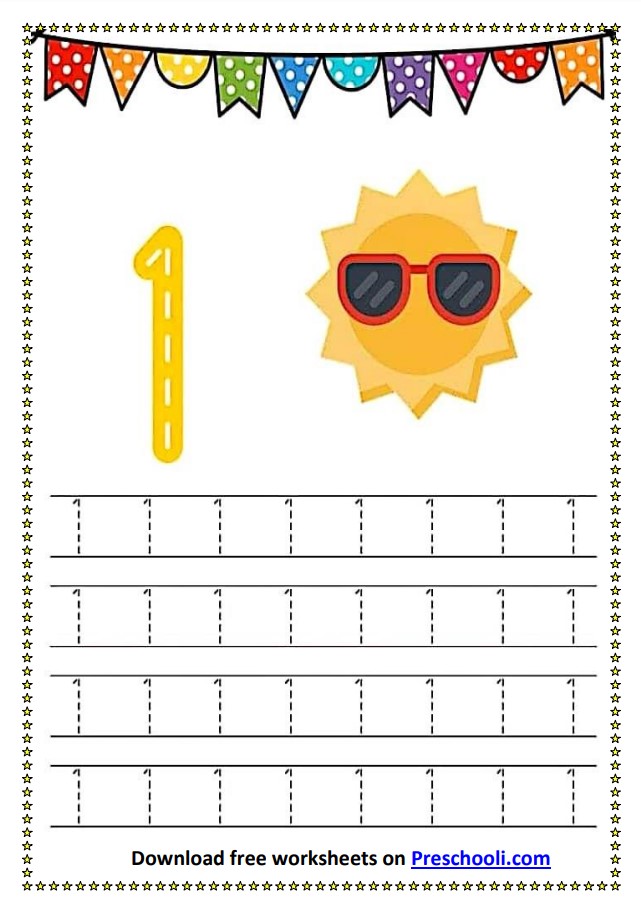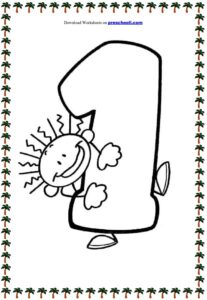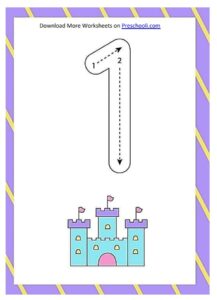Understanding the Value of Math Worksheets for Your Preschooler
Mathematics can sound like a daunting subject to introduce to a preschooler, but with the right approach, it can be as enjoyable as their favorite playtime. Math worksheets for preschoolers serve as a foundational tool, fostering both a love for numbers and a basic understanding of mathematical concepts crucial to early academic success. In this comprehensive guide, we’ll unravel the importance of math worksheets at this crucial age, provide insights for integrating math into daily preschool life, and suggest resources to accompany your child on this educational adventure.
Laying Down the Building Blocks with Math Worksheets for preschool
Early childhood is marked by remarkable cognitive growth and an instinctive curiosity. Math is experienced through play and exploration. Activities like counting the number of steps in a staircase or sorting different-colored toys into groups begin to sow the seeds of arithmetic. Math worksheets for preschoolers are designed to harness this natural inclination towards learning and provide a more structured path for your little one’s mathematical development.
The Importance of Starting Early
Mathematics is not just about numbers; it’s about building logic, critical thinking, and problem-solving skills. Starting your child on math worksheets early sets the stage for more complex concepts they’ll encounter in later years. It also helps them become comfortable with numbers, laying a strong foundation for academic challenges that lie ahead.
Math Worksheets for preschool How worksheets Optimize Learning
Each worksheet is crafted to be visually appealing and engaging, often featuring bright colors, fun illustrations, and relatable themes. These elements serve to capture your child’s attention and make learning feel like fun, not a chore. The structured format of worksheets also helps in developing good study habits and concentration skills — crucial for future academic pursuits.
Integrating Math into Daily Life
Math doesn’t just happen during structured learning times; it’s all around us in the patterns of nature, the designs of buildings, and the rhythms of music. Preschoolers learn best when math is integrated into their daily activities in a natural and playful manner.
Daily Routines as Teaching Moments
Simple routines like setting the table for meals, taking a walk, or even preparing a bath can become learning opportunities. Turn these into counting exercises or discussions about shapes and sizes. This daily integration ensures your child associates mathematical thinking with everyday life.
Math through Play
Play is the work of the child, as the saying goes. This is the time when a child is most receptive to learning and when they form their first impressions of math. Tools like blocks and puzzles offer tactile experiences in counting, sorting, and categorizing, making abstract concepts tangible.
Getting the Most Out of Math Worksheets
With countless worksheets available online and in educational stores, it’s important to choose those that align with your child’s developmental stage and interests. A well-chosen math worksheet will act as a guide, supporting them through familiar and novel concepts.
Selecting Age-Appropriate Worksheets
It’s crucial to select worksheets with activities that are developmentally suitable for a preschooler’s short attention span. They should involve simple tasks such as matching, tracing, coloring, and simple addition and subtraction — all designed to be completed within a short session.
Catering to Their Interests
Children are naturally drawn to subjects they find interesting. If your child loves animals, finding worksheets that use animals in the examples might increase their motivation and enjoyment. Personalizing their learning experience in this way can significantly enhance their engagement and retention.
Transitioning from Worksheets to Free Play
While worksheets are fantastic tools, balance is key. The goal isn’t to create math geniuses overnight but to instill a lifelong love for learning. It’s important to transition from structured worksheets to free play that allows children to apply and reinforce what they’ve learned in a more organic way.
Encouraging Independent Exploration
When children take their math knowledge and apply it in creative play, they’re developing a deeper understanding of the concepts. Whether it’s by creating their own ‘math problems’ while building a tower or by organizing their toys based on specific criteria, they’re extending their learning independently.
Advocating for Unstructured Math Play
Setting aside time for unstructured math play also ensures that children can approach numbers and patterns in an open-ended way. This could include playing with math manipulatives like counting bears and number rods or even creating their own math-themed games.
Free Resources for Math Worksheets for preschool and Worksheets at Your Fingertips
The internet is a treasure trove of free math worksheets and resources, but navigating it can be overwhelming. We’ve scoured the web to find the best, most trusted sources for your little learner.
Quality Over Quantity
Remember, it’s not about the number of worksheets your child completes, but the quality of the learning experience. Look for reputable educational websites and platforms that offer worksheets created by early childhood experts.
Blending Digital and Print
Digital worksheets can be a great alternative to print, offering interactivity and immediate feedback. If using electronics, ensure screen time is kept within recommended limits and that the content is as educational as it is entertaining.
Establishing a Positive Math Mindset
One of the most important roles of math worksheets for preschoolers is in establishing a positive mindset towards math. It’s not uncommon for adults to have ‘math anxiety,’ a fear they don’t want to pass on to their children. Encouraging a positive approach to numbers and problem-solving will benefit your child far beyond the classroom.
Celebrate Small Achievements
When your child successfully completes a worksheet, take a moment to celebrate their achievement. Positive reinforcement, regardless of how small the task, builds confidence and a healthy attitude towards math.
Modeling a Healthy Relationship with Math
Your attitude towards math can greatly influence your child’s perspective. If you approach math with curiosity and a willingness to learn, your child is more likely to do the same. Expressing math in everyday life and showing its practical uses can also help your child understand its importance and relevance.
Leading the Way for Lifelong Math Success
Providing your preschooler with meaningful math experiences, both through worksheets and in daily life, is a gift that keeps on giving. It fosters a love for learning and sets the stage for a confident, successful future in a world where mathematical literacy is increasingly important.
Preschoolers are like sponges, soaking up every bit of knowledge, and mathematical skills developed at this age pave the way for critical thinking and problem-solving abilities. With the right tools, guidance, and mindset, you can turn math into a joyful adventure for your little one.
Join our Facebook Group



